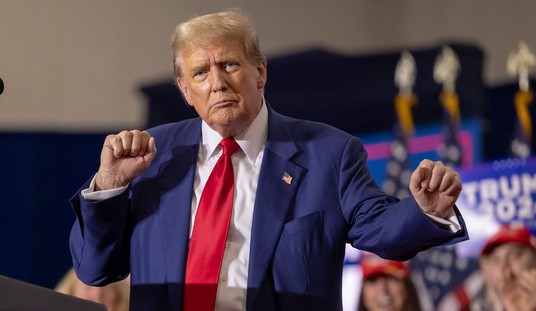The Newspeak Dictionary, totally bitchin’ Valley Girl edition, like fer-sure!, as explored by former Ed Koch speechwriter Clark Whelton in City Journal this month. Whelton describes a series of interviews with potential Koch staffers fresh out of college in the mid-1980s. Their linguistic skills seemed to diminish in parallel with the rising costs of tuition:
As the interviews proceeded, it grew obvious that “like” had strengthened its grip on intern syntax. And something new had been added: “You know” had replaced “Ummm . . .” as the sentence filler of choice. The candidates seemed to be evading the chore of beginning new thoughts. They spoke in run-on sentences, which they padded by adding “and stuff” at the end. Their writing samples were terrible. It took eight tries to find a promising intern. In the spring of 1987 came the all-interrogative interview. I asked a candidate where she went to school.
“Columbia?” she replied. Or asked.
“And you’re majoring in . . .”
“English?”
All her answers sounded like questions. Several other students did the same thing, ending declarative sentences with an interrogative rise. Something odd was happening. Was it guerrilla grammar? Had college kids fallen under the spell of some mad guru of verbal chaos? I began taking notes and mailed a letter to William Safire at the New York Times, urging him to do a column on the devolution of coherent speech. Undergraduates, I said, seemed to be shifting the burden of communication from speaker to listener. Ambiguity, evasion, and body language, such as air quotes—using fingers as quotation marks to indicate clichés—were transforming college English into a coded sign language in which speakers worked hard to avoid saying anything definite. I called it Vagueness.
By autumn 1987, the job interviews revealed that “like” was no longer a mere slang usage. It had mutated from hip preposition into the verbal milfoil that still clogs spoken English today. Vagueness was on the march. Double-clutching (“What I said was, I said . . .”) sprang into the arena. Playbacks, in which a speaker re-creates past events by narrating both sides of a conversation (“So I’m like, ‘Want to, like, see a movie?’ And he goes, ‘No way.’ And I go . . .”), made their entrance. I was baffled by what seemed to be a reversion to the idioms of childhood. And yet intern candidates were not hesitant or uncomfortable about speaking elementary school dialects in a college-level job interview. I engaged them in conversation and gradually realized that they saw Vagueness not as slang but as mainstream English. At long last, it dawned on me: Vagueness was not a campus fad or just another generational raid on proper locution. It was a coup. Linguistic rabble had stormed the grammar palace. The principles of effective speech had gone up in flames.
And speaking of the Newspeak dictionary, on Thursday, Mark Steyn linked to this essay by journalist Jill Sligay at the Detroit Examiner titled, “Battle of the bailouts: Haters hate as Detroit brings sexy back.”
Naturally, by “haters,” she’s referring to Steyn, not the people who emailed or tweeted such comments as:
“F**k you, Mark Steyn” (South-Eastern Michigan Sports), “F**K YOU, MARK STEYN!!!” (Cletus Pages),”Mark Steyn is a Faggot” (Brandon A Jiles), and “Has anyone fed Mark Steyn a d*ck?“
And not to go all Jay Nordlinger on you, but isn’t the word “haters” itself remarkably ugly? The Gotham Resistance blog explored the sociolinguistics of the H-word a few years ago, in a post that’s definitely worth a few minutes of your time.










Join the conversation as a VIP Member